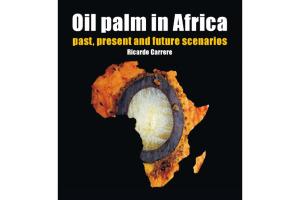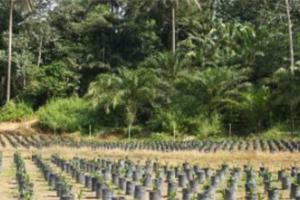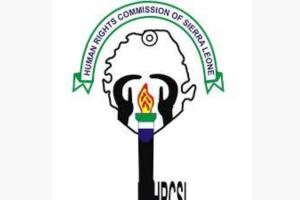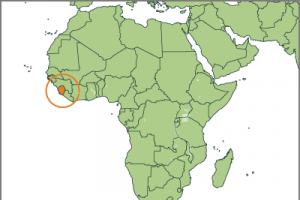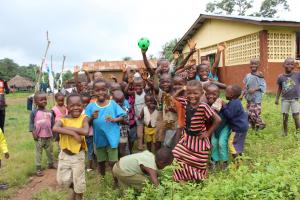“Who is benefitting ?
Sierra Leone
Other information
11 September 2013
Publications
30 August 2013
Governments are opening the doors to corporations for planting vast areas of land with oil palm plantations. This trend is not only happening in West and Central African countries, but is even expanding to parts of Eastern Africa. Large scale oil palm plantations are already causing serious environmental and social impacts in some countries, resulting in loss of community rights over their territories.
Other information
30 May 2013
A few corporations will concentrate control of more than 75% of the arable land in the Pujehun district for large-scale industrial agriculture, primarily oil palm plantations depriving local farming communities of their land and trees.
Other information
30 December 2012
On 1st of December 2012, aggrieved landowners from 36 villages in Malen Chiefdom, affected by large-scale oil palm plantations of the Socfin company, sent a letter through their local association (MALOA) to the Human Rights Commission in Sierra Leone, denunciating human rights abuses such as ongoing harassment, molestation and intimidation.
Bulletin articles
29 January 2012
During 11 years - from 1991 to 2002 - a harsh civil war fueled by the inequitable distribution of power and resources decimated the population of Sierra Leone. The country now faces a state of food insecurity and has become a net food importer attributed not only to the war but also to World Bank and IMF recipes. With the aim of fostering a market-based economy, those institutions imposed policies that curtailed state agricultural programs and investments in agriculture.
Bulletin articles
28 August 2008
Members of FoE Africa from Ghana, Togo, Sierra Leone, South Africa, Nigeria, Mauritius, Tunisia and Swaziland met for five days in Accra, Ghana reviewing issues that confront the African environment. A particular focus was placed on the current food crisis and agrofuels on the continent.
Bulletin articles
30 June 2003
There is now compelling evidence that mining severely limits a nation's ability to sustain economic growth (even within the narrow definitions usually adhered to by nation states). This is a surprising "discovery" for those who think that "riches" in the ground are unfailingly translated into money in the bank. But for those who adopt an anti-colonialist analysis of capital accumulation, the fundamental reason for the discrepancy is not hard to find. Zaire, Bolivia and Sierra Leone are not merely "poor" -they have been ruthlessly impoverished over hundreds of years.
